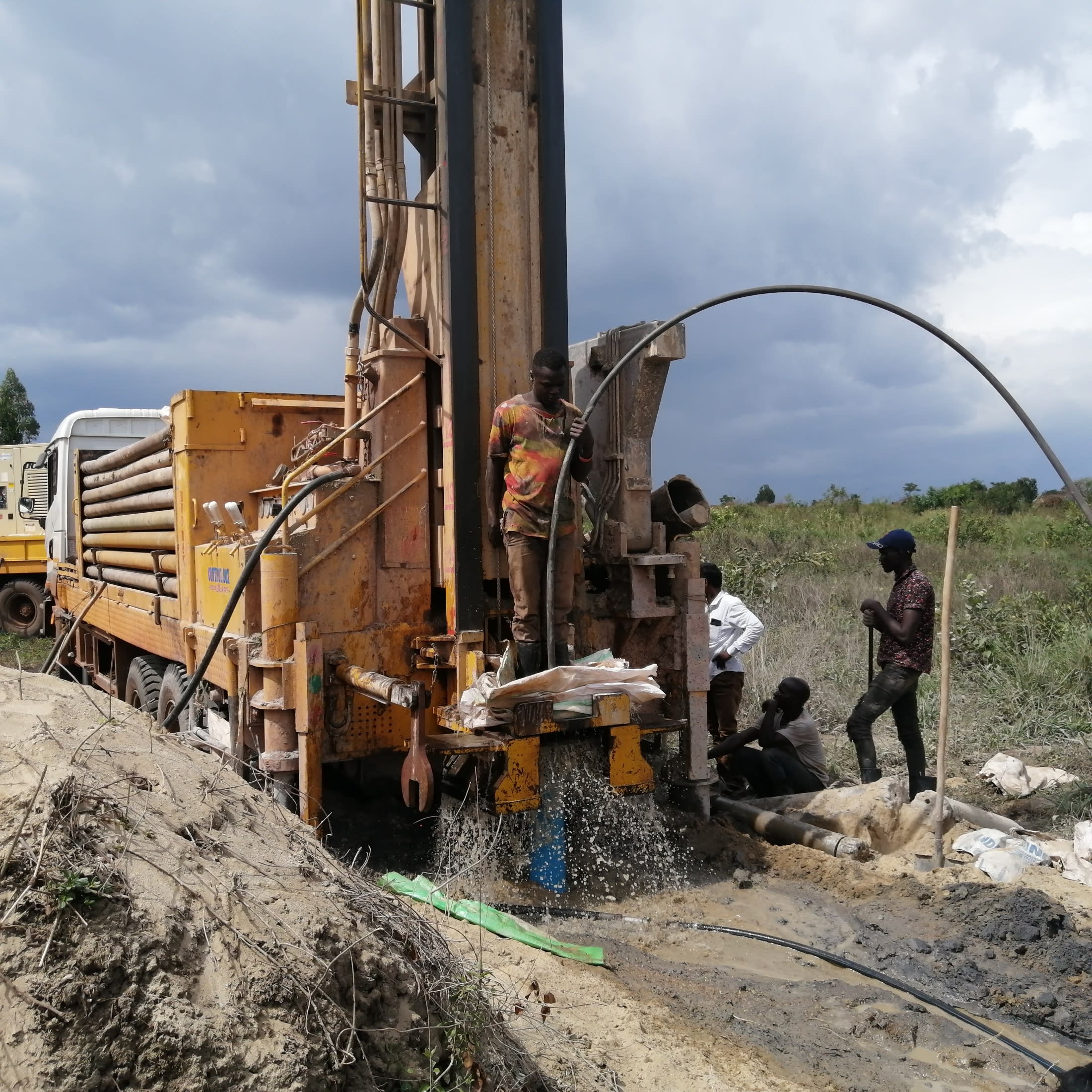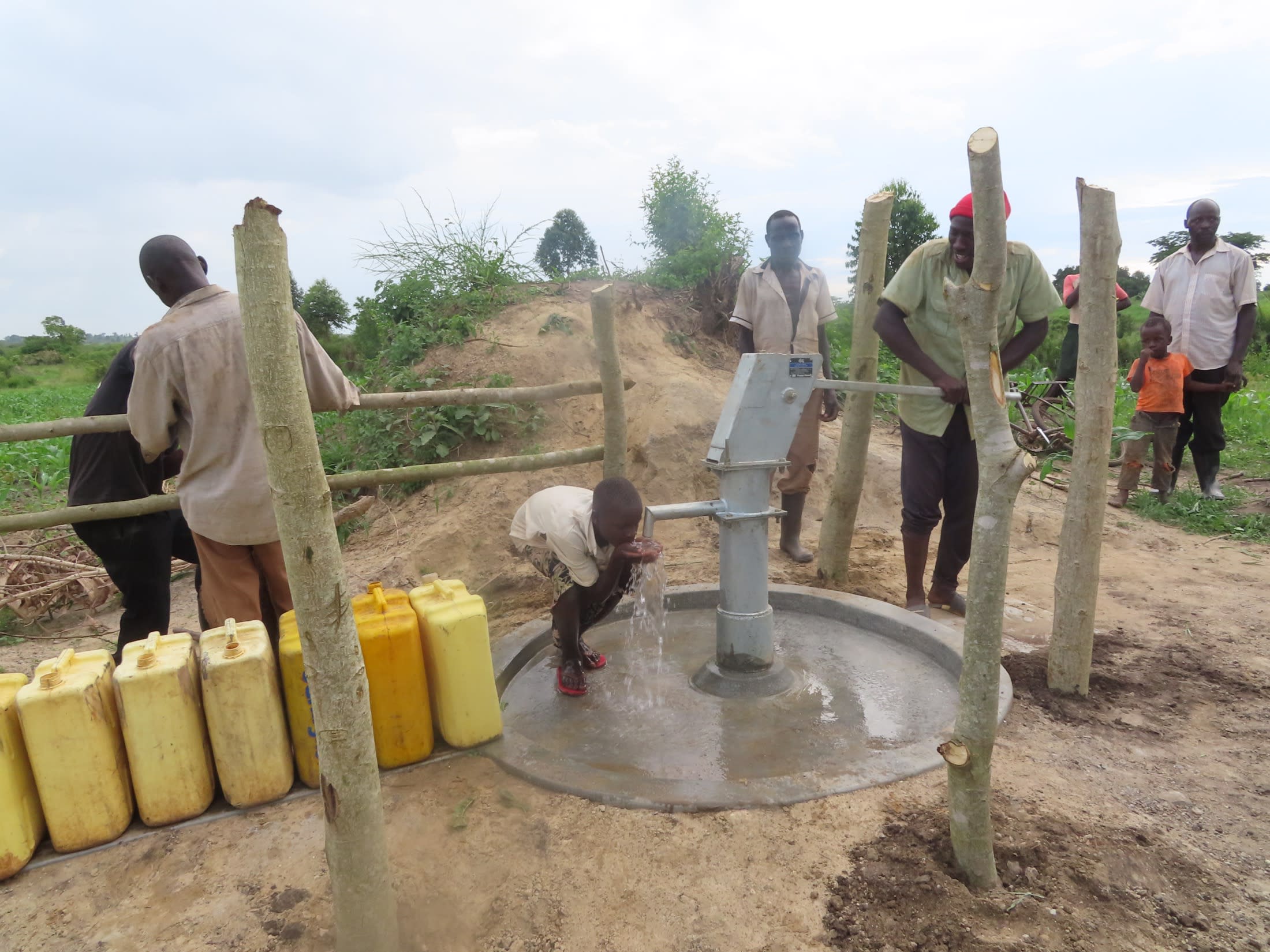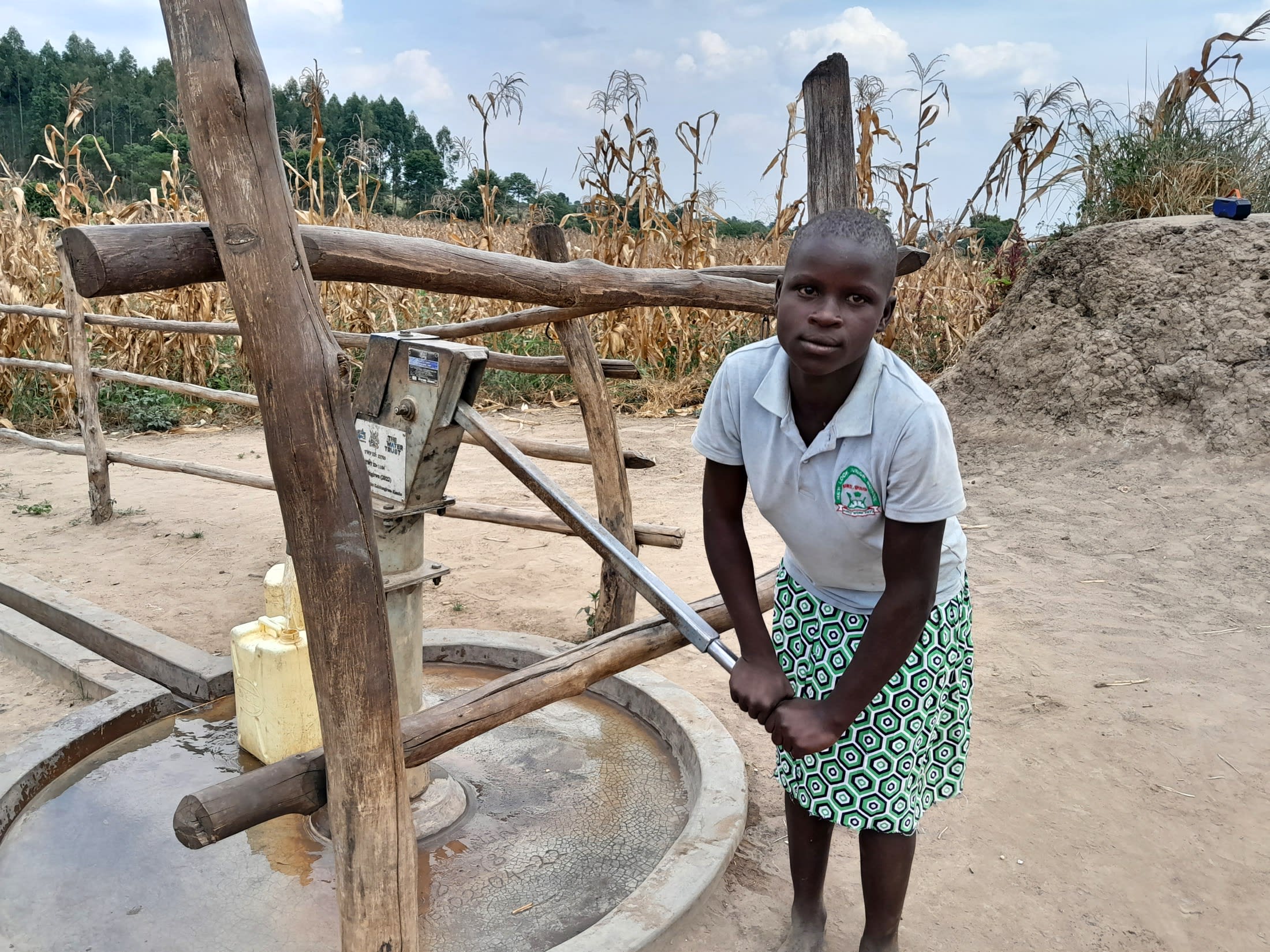Katakungirwa village is primarily flat, surrounded by gently sloping hills. There are over 100 households and a population of over 500 people in the community.
The most common livelihood is peasant farming. It is a unique agricultural community because it is the leading grower of maize in Bwijanga county.
When Samuel, a 12-year-old primary school student, was asked how the current water situation affects him personally, he said, "Our village has no water point. In an attempt to access water, we always go to other sources in the neighboring villages, where we encounter a lot of congestion leading to several fights and delays."

He continued: "Before the COVID-19 pandemic that led to the closure of schools, I would be beaten by my teachers for arriving late at school. Due to fear, most times I would miss classes."
Children are missing the opportunity to learn and dream about the future.
The daily schedule of these community members is impacted highly by the fact that they do not have a water point. They must travel more than 2km (over a mile) to access water, and often skip breakfast so they will have time. The water they manage to bring home is often not enough, so they use it sparingly, leading to dehydration and a lack of sanitation and hygiene.

Catherine Atugonzaa, a 24-year-old housewife with four children, shared how the current water situation affects her. "Due to the long-distance, [I] am not able to collect enough water to be used for my daily activities. We waste a lot of time going to collect water alongside concentrating on other domestic activities."
She went on to share the impact within her family: "Our children are starved while at home, and our husbands beat us for delaying at the source, which has lead to several failed marriages in this village. We are really requesting you provide us with a borehole to relieve us from all these challenges."
Here’s what we’re going to do about it:
New Borehole
This new borehole is an exciting opportunity for this community! We work with the community to determine the best possible sites for this well.
We conducted a hydrogeological survey and the results indicated the water table is an ideal candidate for a borehole well. Due to a borehole well's unique ability to tap into a safe, year-round water column, it will be poised to serve all of the water needs for this community, even through the dry months.
Community members will help collect the needed construction materials such as sand, rocks, and water for mixing cement. They will also provide housing and meals for the work team, in addition to providing local laborers. We will complement their materials by providing an expert team of artisans and drilling professionals, tools, hardware, and the hand-pump. Once finished, water from the well will then be used by community members for drinking, handwashing, cooking, cleaning, and much more.
Training
Training’s main objectives are the use of latrines and observing proper hygiene practices since these goals are inherently connected to the provision of clean water. Open defecation, water storage in unclean containers and the absence of hand-washing are all possible contaminants of a household water supply. Each participating village must achieve Open Defecation Free status (defined by one latrine per household) prior to the pump installation for this borehole well.
This social program includes the assignment of one Community Development Officer (CDO) to each village. The CDO encourages each household to build an ideal homestead that includes: a latrine, a handwashing facility, a separate structure for animals, a rubbish pit and a drying rack for dishes.
We also implement the Community-Led Total Sanitation (CLTS) approach with each of our village partners. This aims to improve the sanitation and hygiene practices and behaviors of a village. During these sessions, village leaders naturally emerge and push the community to realize that the current practices of individual households – particularly the practice of open defecation – are not only unhealthy, but affect the entire village. CLTS facilitates a process in which community members realize the negative consequences of their current water, sanitation and hygiene behaviors and are inspired to take action. Group interactions are frequent motivators for individual households to build latrines, use them, and demand that other households do the same.
Improved Sanitation
The aim is that all households own an improved latrine. Many households do not use a latrine but use the bush. Due to open defecation, feces are spread all over the village. This leads to waterborne diseases and contamination of groundwater and surface water. Our aim is that the community is able to live a healthy life free of preventable diseases. We endeavor that at the end of our presence in the community, people will have both access to sustainable, clean water and access to sanitation. We have now organized families to form digging groups for latrine construction, and empowered them with tools to use.

 Borehole Well and Hand Pump
Borehole Well and Hand Pump
 Rehabilitation Project
Rehabilitation Project





























